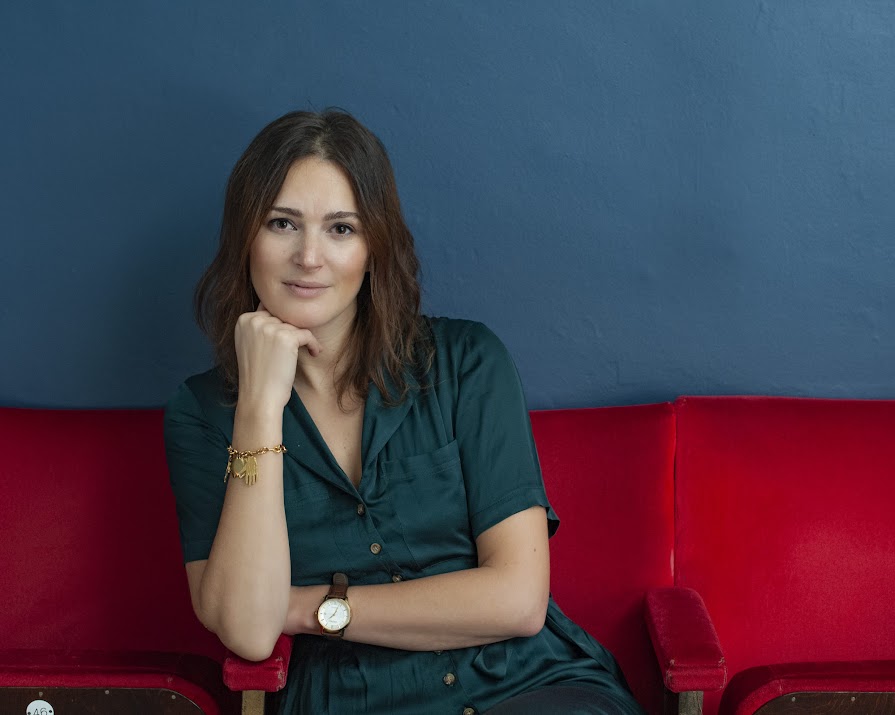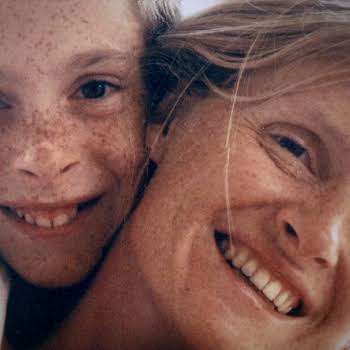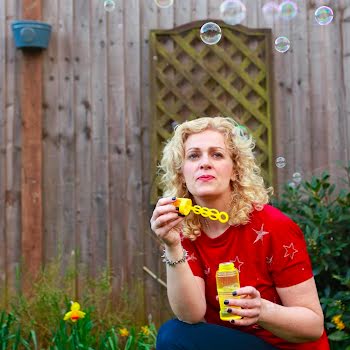
Elizabeth Day: ‘Life is full of failure. But it’s never too late to change your life’
Failure is a natural element of the cycle of life. We can’t always appreciate how are failings ultimately set us up for the next chapter, but author Elizabeth Day knows more than most how to turn this into something positive. Here she talks of her book Failosophy, talks failure during a pandemic and the gender divide that comes with it.
Author Elizabeth Day is so easy to talk to that it’s no wonder she can extract so much memorable and deep information from her guests on her hugely successful How to Fail podcast. Because taking about failure is never easy. It means opening ourselves up to that which might make us feel lesser. It would be easier to simply forget about it and move on, but where would the help be in that? Sharing the downward spirals is what makes coping with them so much easier.
This is in part, how Failosophy came to be. This shorter and bittier book distils seven “Failure Principles” that Day developed as her podcast gained momentum.
“I started my podcast in July 2018. And I honestly felt like it would be a one-season thing,” Day explained. “And I thought, if it’s only one season and I’ve done something I feel really passionate about, I’m really glad it exists in the form that I want to do this in. And then I was offered a book deal to write How to Fail but I had to deliver it by the end of that year. So actually, I only had one and a half seasons of the podcast to use research for the original book. That’s why it’s part memoir, part manifesto.
“And as the podcast matured and more and more amazing people have given me the benefit of their wisdom and insight, I just wanted to share that really. And at the same time, I realised that certain themes in interviews came up again and again and again. And that was really the basis of the Failure Principles; they seemed to fit quite neatly into seven main points, which could help you live your life, if you hit a rough patch. And so it was a combination of those two things. I wanted it to feel accessible and upbeat.”
View this post on Instagram
And it is. Pragmatic, to the point and intertwined with stories and words of wisdom, it’s a fitting continuation and companion to her first novel, but all in one succinct package. It offers what we most need when failure sees us lose our way: guidance. And the fact that it’s upbeat while not shying away from the darker side of the coin, means you’ll finish it feeling hopeful. This is also essential to the books overall impact, especially given the year that has been 2020!
In asking her podcast guests to be vulnerable, to reveal their own failings, from the profound losses to the more mundane, Day offers up that side of herself also, from her marriage breakup to not having children – these are her failings, which, she says, all make up the threads of a life well-lived.
View this post on Instagram
“Failures have been an integral part of my life,” she writes. “All these failures have been part of my growth. Life is texture. Experiencing all facets of existence – the good and the bad – enables us to appreciate them fully.” And ultimately, she says being at peace with failure means there’ll be few regrets at the end “…Happiness is, by necessity, transient. It can only be fully appreciated in opposition to other, darker emotions.”
However, she acknowledges, failure can’t always be viewed as a positive, either. “I want to make very clear that I don’t think you can always just bounce back, and the world is full of pink roses and fluffy kittens,” she continued. “But I’m very aware that life is full of failure. And like it’s a sort of trauma – an unexpected crisis. And that’s what makes us human, is that we all face that. So, it’s asking, what can we do about that? Once we process whatever grief we need to feel, what can we do about it? Because it’s something that we all face, therefore, we shouldn’t live our lives in fear of it.”
Our talk moves swiftly to that feeling of failure in the every day, only now amplified thanks to the pandemic. Women, I say to Day, almost certainly carry more emotional weight when it comes to failure. Feel more pressure to tick boxes and are more likely to feel they have failed if these don’t get ticked. She agrees.
“I just would like to say to women feeling the pressures of the pandemic in particular, that it is never too late to change your life. And that this in the grand scheme of things, this is only a pause, it is not a full stop. And you will find whatever your path is, because it still exists on the other side.”
“Box ticking is very interesting to me because when I first started doing the first season of How to Fail, all the men that I approached apart from one, said to me, ‘I don’t think I have failed so I don’t think I’m right for this podcast,’ whereas all the women said, ‘I’ve had so many failings, it’s hard to think of just three.'”
“When I came to speak to both men and women, they both failed as much as each other, but white men had a different way of viewing it.
“If you’re born into a world where you’re lucky enough that you are a white, cisgender, middle-class man, then your path to success feels more assured. Whereas if you are a woman, a person of colour, a marginalised person, a disabled person in any way, shape or form, then you feel like you have to try twice as hard in order to level the playing field. And if you encounter failure, it feels more hostile, rather than just being a simple tool to overcome.”
“I do think there’s something in that notion of feeling like you have to prove yourself more, if you’re not born with all the advantages. And I’m aware that I speak from the position of extreme privilege, in that I’m white and middle class, I have a roof over my head. So I know that my experience of failure will be different from someone else’s. And I also know I’m given more opportunities to fail. And that’s why I have a really diverse range of people speaking on the podcast about experiences that I can’t relate to.”
Finally, I ask, is she sick of talking about failure?
“Funny enough, I’m not! Asking people about failure hacks into everything that makes us human. It taps into our vulnerability, it taps into our authenticity. It taps into our share of connectedness and I am not sick of it. I love talking about it. And I love the fact that people are kind enough to tell me that my talking about it helps them.
“Over the course of two years, my definition of it has changed, it is twofold. The kind of normal failure of failing your driving test, a relationship ending can be put onto the definition of what happens when life doesn’t go according to plan. The problem with that definition, I realised, was that it didn’t encompass cataclysmic existential failures, like a global pandemic, or like, a very dear friend getting very ill.
“You can’t attach meaning to them in the same way, but I realised that once you have done the grieving that you need to do, you can be grief-stricken, and you can choose to be at peace with both those states of mind. Accepting life is texture, and has both sadness and happiness, both the grief and contentment – you can find meaning in experiencing that whole range of emotion.”

Failosophy by Elizabeth Day (4th Estate, approx €9.99) is out now.













